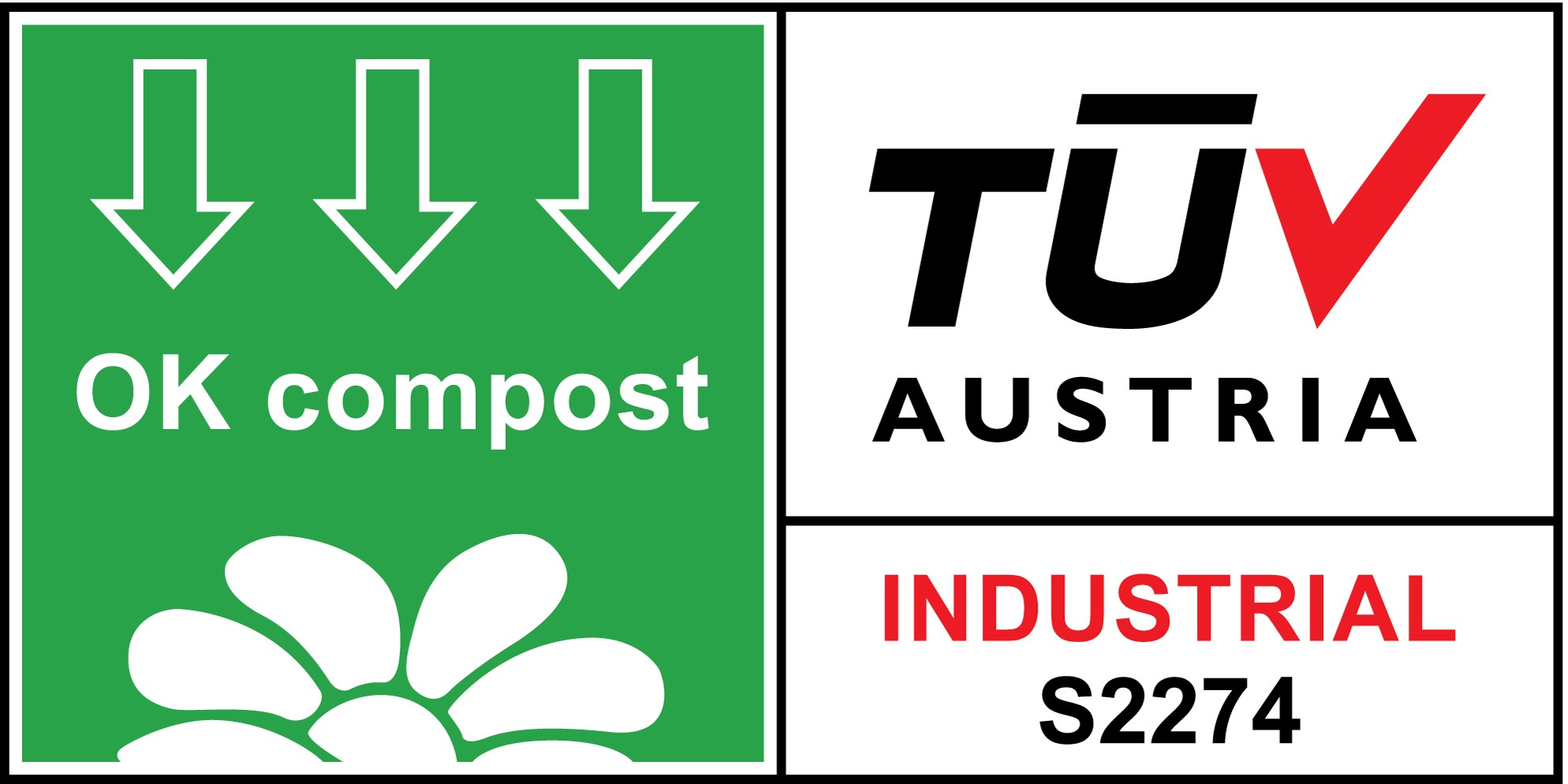The PLA-Premium bioplastics made of ADBio PLA+ additive decompose in a maximum of 6 months, becoming CO2, fertilizer, and water, following the European legislation on containers and packaging EN 13432. The Valencian startup also complies with European legislation on materials in contact with food FCM and cosmetic products.
PLA-Premium bioplastics manufactured with the ADBio PLA + additive obtain the official seal of “OK Industrial compost” granted by TÜV Austria, the highest certification body at the European level in terms of compostability. After evaluating the tests presented by an independent body, it has been proven that ADBioplastics products decompose in a maximum of 6 months, under industrial conditions, turning into CO2, compost, and water. “We are very proud to hold this seal granted by this European body because it is the maximum guarantee of the quality of our products for our customers. A process that has been delayed by COVID-19, but that, finally, we can show off under the number S2274”, Lorena García, Managing Director, says.
The thicknesses, which are certified, ranging from 400 microns for all PLA-Premium grades to 1mm for grades W 751, Y 053, and Z 354. “All the tests that have been carried out indicate that the material complies perfectly with the European standard EN 13432 for containers and packaging in terms of physical-chemical characterization to demonstrate the absence of heavy metals, their disintegration, and biodegradability, as well as their low ecotoxicity ”, Nadia García, R&D Specialist, explains. This standard is harmonized with Directive 94/62 / EC on packaging and packaging waste, and its amendments, for the recovery of packaging. In addition, to this certification, it is added that ADBioplastics products also comply with European legislation on materials in contact with food (FCM) and cosmetic products.
The BIO solutions produced by this company are aimed at the sectors: packaging (food and cosmetics), textiles, construction, 3D printing, and biomedical in a more long-term strategy. “Our pellets are perfect for the manufacture of thermoformed containers (blisters) for fresh pastries with high turnover in food since it improves the mechanical properties (toughness and flexibility) compared to conventional PLA, maintaining transparency. In addition, for the cosmetic sector, concept tests have been carried out with bottles for hair masks and shampoos with great success”, Nadia reports. In the last two months, ADBioplastics has carried out more than 5 success stories framed in these two sectors under extrusion and injection technologies, which will gradually be published on the company’s new website. “It is important to highlight that it is not necessary to change the machinery of the current plastic industry, which allows manufacturers to take the step towards a circular economy more quickly and without extra costs,” Lorena says.
ADBioplastics is dedicated to the development and manufacture, to measure, of additives and bioplastics for different sectors. The products are biobased because they come from corn, sugar cane or beets, as well as compostable to comply with the European Union’s Plastics Reduction Directive, set for 2030 and promote the circular economy. If you want to know more about this startup, go to www.adbioplastics.com.

